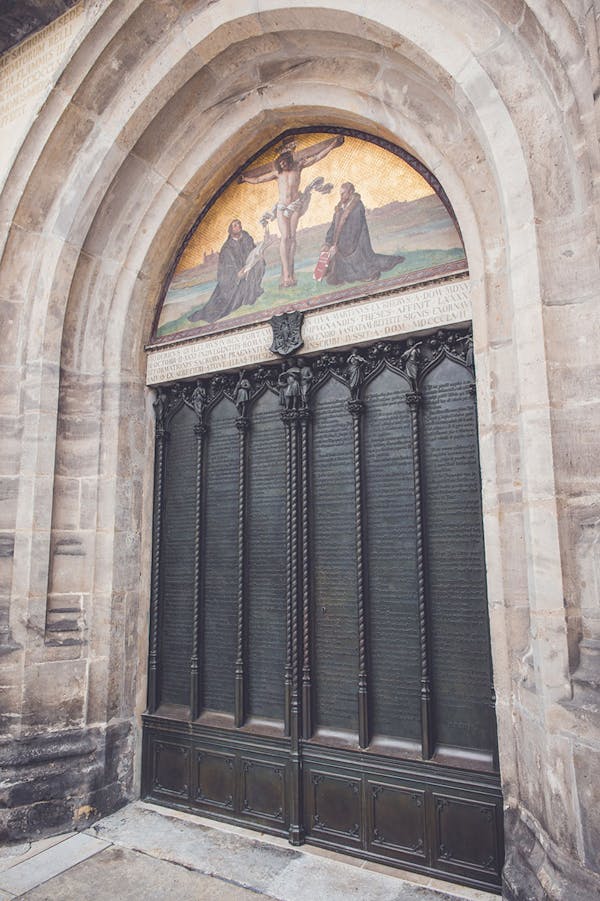THE ROME OF THE REFORMATION
Geneva was originally a Catholic city, ruled by a count under the jurisdiction of the Holy Roman Empire. Geneva received its first Bishop in the 5th century. In the 14th Century the city was granted a large degree of autonomy and became self governing. During this period the House of Savoy dominated Geneva and later featured prominently in the oligarchic republican government that was formed in the city. The city was governed by a handful of men who formed the Grand Council
The Protestant Reformation caused a shift in power leading the city to throw off the Catholic Savoy rule in favour of aligning itself with the Protestant Swiss Confederacy. In 1536 Geneva identified itself as a Protestant city. The same year John Calvin passed through the city and was recruited by William Farel, who by this time was a permanent Protestant fixture in the city, to help establish the Reformation on a more firm footing in Geneva.
Calvin was reluctant to oblige Farel. He was bookish and quiet, desiring the comfort of a well stocked library in which to think and write. According to the historian Wylie, Farel, ever the firebrand, cursed Calvin’s scholarly pursuits and charged him to stay and preach in Geneva. Taken aback and deeply convicted, Calvin complied and began to work with Farel to implement Spiritual and moral reform within the city.
Calvin’s first attempts at social and moral reform were met with resistance. Many citizens chafed under the restraints imposed upon their daily lives and complained loudly to the city council. The council exiled Calvin in 1538 and he went to live with the Reformer Martin Bucer in Strasbourg. However by 1541 the city council relented and, recognising the value of Calvin’s work in the city, invited him to return. Calvin agreed but only on the condition that the city council accept his new constitution for church organisation which they were only too happy to do. The Church Ordinance of 1541 was adopted and Calvin returned to Geneva to continue the work he had begun there.
Under Calvin Geneva became a model city, displaying a vibrant moral uprightness that had not been seen up to that point. Geneva was both a social experiment and a fertile breeding ground for the Reformation. Before long it became the Rome of the Reformation, a hub for training and deploying countless Protestant missionaries across Europe.

